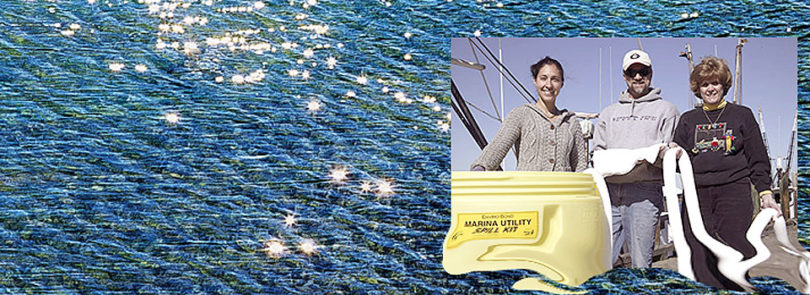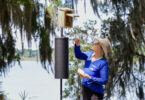Headline-making catastrophes like the 1989 Exxon Valdez oil spill off the Alaskan coast only contribute a fraction – about five percent – of the petroleum contaminating the world’s oceans every year.
Far more common and just as damaging to the environment are small-vessel sinkings like that of the Brunswick, Ga.-based shrimp boat “Captain Jack” in March 2007. Even routine boat maintenance – changing oil, cleaning bilges and emptying ballasts – accounts for nearly one-fifth of the world’s waterway petroleum pollution, according to the 1995 Smithsonian Institution exhibit “Ocean Planet.”
To help reduce oil pollution in Georgia’s coastal waters, the University of Georgia’s Marine Extension Service (MAREX) designed an educational program to help boat owners lower their polluting potential by using bilge socks.
Called “Stick a Sock in It,” the program provides workshops for using the socks, which look like floating sausage links and absorb the oil, diesel and gasoline that can leak from an onboard engine into a boat’s bilge – the compartment where water collects – and keep the petroleum’s tell-tale shiny, toxic sheen from contaminating the environment.
“Bilges – and what’s in them – are one of those out-of-sight, out-of-mind things and people are often unaware there’s a problem because the bilge pump is controlled automatically,” said Joe Tinsman, owner of Fuel Management Services in Brunswick. He received two cases of the socks from MAREX and has been giving them away to his customers when he notices fuel leaks in their bilges.
Between April 2004 and December 2006, MAREX hosted 45 bilge-sock workshops and distributed nearly 7,000 free socks to research vessels; commercial shrimp boat, tug boat and pilot boat owners; and recreational boat owners along the Georgia coast.
“We want to educate people and show them ways to be environmentally conscious, and bilge socks are convenient,” said Paul Christian, who manages the MAREX program in Brunswick. “They trap hazardous materials so they don’t escape into the environment and you can throw them away in the regular trash when they’re full.”
In response to an increase in small vessel sinkings, MAREX also distributed six emergency oil spill containment kits to marinas along the Georgia coast in February 2007. Only a month later, two of the kits were used during the sinking of the “Captain Jack.” For more information or to request a bilge sock, contact Paul Christian at 912/264-7336 or pchristi@uga.edu.







